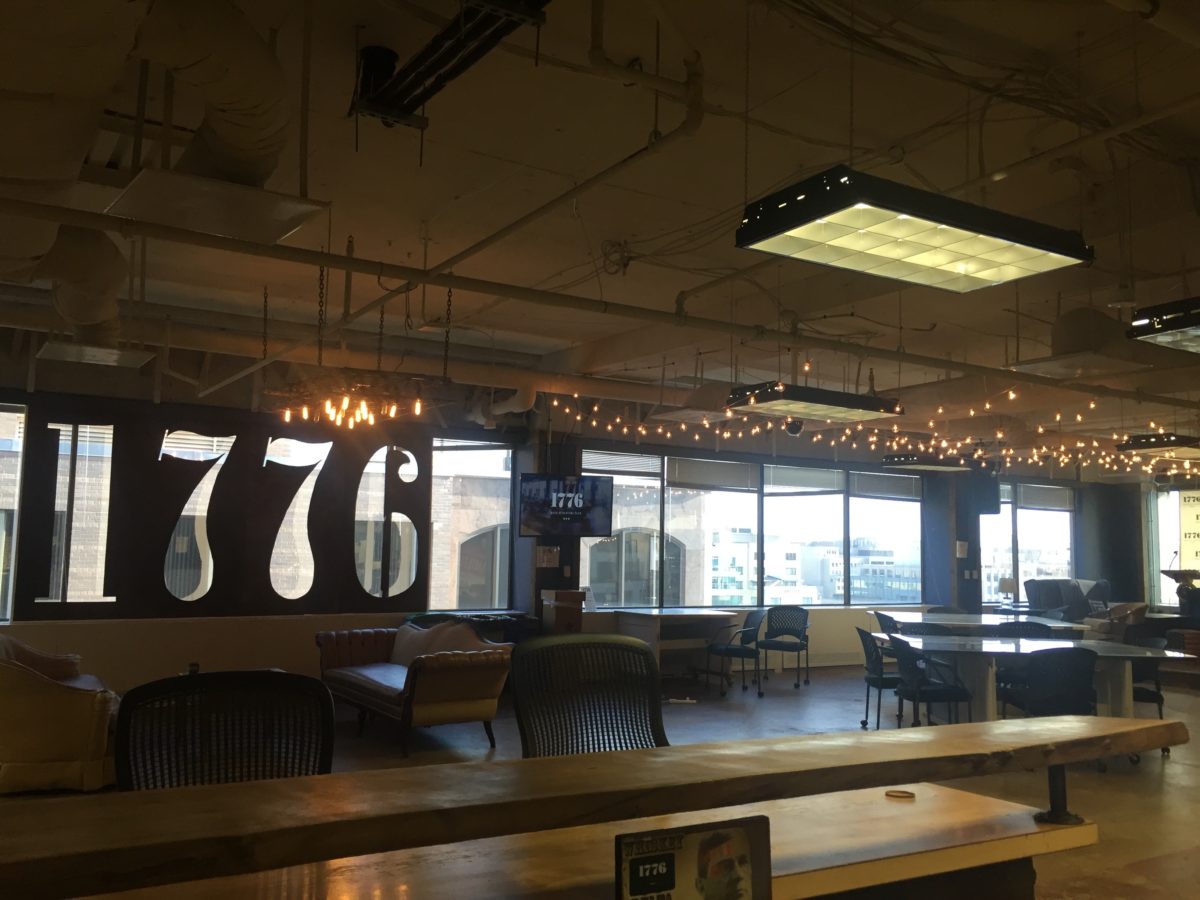The incubator concept, at it’s core, is quite simple: Get a bunch of entrepreneurs together in the same space (physical or virtual) where they can share lessons and learn from each other on this difficult road known as entrepreneurship.
In other words, create a community.
But creating a community, as any coworking space community manager will be able to attest, is not as simple as giving people access to the same space. Sure, if you and I worked in the same space I could ask for your feedback or input on my work. But would I? Would I feel comfortable enough to? And from a community-creator’s perspective, how does one go about creating a space where people feel comfortable collaborating?
This is a question that 1776, #dctech’s central incubator space over the past few years, has played around with. The incubator allows members access to a physical space (in D.C. this might be in Crystal City or on 15th Street), a virtual space (Union), all manor of events programming and mentorship through expert “office hours.” But how can 1776 make sure that members are getting real value out of all these resources?
“We were finding that all of these resources can be overwhelming for some members,” Shahier Rahman, biz dev manager at 1776, told Technical.ly. This was especially true, he noticed, for first time founders. So Rahman came up with a concept, a more formal 12 week program during which the incubator can guide new members through the resources 1776 has to offer. The curriculum is also designed, Rahman said, to make startups “investor-ready” by the end of 12 weeks.
It’s called the Startup Cohort. (It’s similar, in many ways, to the Fellowship program the new 1776 campus in Brooklyn has been running from the start.
Could the Startup Cohort program be a way for 1776 to distinguish itself in a more crowded incubation market?
Rahman sat down with others on the 1776 team and came up with a curriculum — they followed Lean Startup methodology closely and used Union as a resource. “A lot of the big-picture topics for the curriculum already existed on Union,” Rahman said. For example, topics covered over the 12 weeks include things like idea validation, storytelling, building a MVP, market research and more.
Lauren Hyman, who runs 1776’s mentorship program, then set about identifying members in the 1776 network who would be able to teach each of these topics. Each class was recorded and posted on Union for the cohort to review — Rahman and team plan to release the curriculum more broadly once these 12 weeks wrap up.
The first group of 20 startups to take part in the Startup Cohort arrived on campus in February. Well, 18 of them did — two were existing 1776 members. Over the course of the next 12 weeks they learned from mentors and from each other. It has been fun, Rahman reflected, to watch them grow into a strong group and help each other along the way. “There’s been a lot of organic learn-from-each-other community,” Rahman said.
And this, of course, was precisely the idea. Rahman says 1776 “definitely” plans to continue the program with another group. “In my humble opinion it’s been a resounding success,” he said.
For now, the first Startup Cohort will graduate via a pitch showcase event on Tuesday.
From our perspective, it’s interesting to see 1776 move toward a more organized program. As #dctech grows, the four year old incubator is no longer the only place for District-based startups to find themselves surrounded by fellow entrepreneurs. (WeWork, for example, also has a community-building ethos and is now everywhere.) Could the Startup Cohort program be a way for 1776 to distinguish itself (and its unique value) for the years to come?







